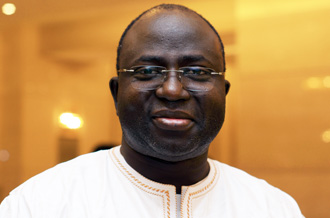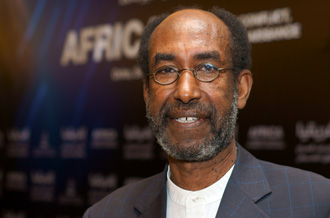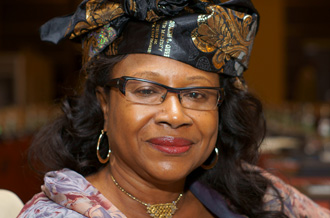African intellectuals ponder peace prospects
Analysts believe the continent is moving past stereotypes around conflict but governance problems continue.
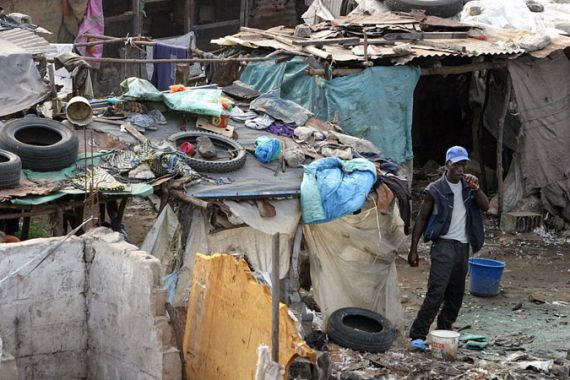
It’s no secret that Africa gets a lot of bad press. Stories of war and hunger have dominated international headlines about the continent and, with limited space devoted to more positive stories, the damage to its image has been significant.
Africans often express frustration with how they, and their countries, are portrayed but it’s a problem that goes beyond national pride. Inaccurate coverage can scare investors away, it can cause Africans problems when they travel and it can lead to wrong-headed policies towards African countries from nations outside the continent.
Over the last couple of years, a backlash against that sort of coverage coupled with booming economies in some African countries has led to another over-reported story: Africa is rising. The old stories of war and famine are invalid now, this story goes. Africa is a continent of “gleaming” skyscrapers filled with middle classes sipping cappuccinos.
The real story, obviously, is that both narratives are reductive and the more complex truth is somewhere in between. Though there are festering conflicts – and new ones erupting – the continent is trying to overcome them. And, though the benefits have yet to filter down to the poorest in many nations, economic growth is more impressive than ever.
A group of Africa’s most prominent thinkers recently gathered in Doha to consider these issues – and others – during a conference with a title that tried to sum up these complexities: “Dynamics of conflict, promises of renaissance.”
Al Jazeera caught up with some of the participants and asked them if an Africa without conflict was possible.
| Abdullah Mamadou Bah, columnist and human rights researcher |
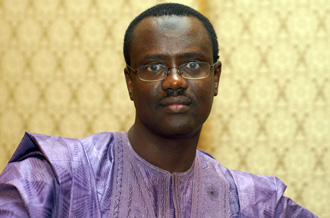 |
| Abdullah Mamadou Bah [Sorin Furcoi / Al Jazeera] |
“I think people in Africa need to communicate better with each other, for without this, we cannot build a prosperous continent.
“All the problems on the continent stem from bad governance. When this is replaced by effective governance, I think this will change the dynamics. As it stands, resources are poorly divided and the wealth of the continent is not shared among its people – the small people. This is one of the sources, roots, of conflict.
“Without conflict this would be the greatest continent on the planet. Because Africa has everything: minerals, human resources, climate. I have faith in the new generation in Africa. I believe that when they reach the centres of power, one day, they will make the necessary changes that are needed.”
| Nagwa Gadaheldam, advisor on sustainable development and climate change |
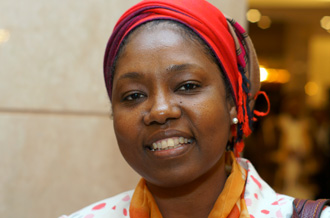 |
| Nagwa Gadaheldam [Sorin Furcoi / Al Jazeera] |
“I don’t think it is true that we are just cut up by conflicts.
“The media is inflaming it. The outsiders would like to see Africa with conflicts – ‘Africa is diseased, Africa is dark, Africa has no prospects, Africa is highly corrupt, Africa is down, we cannot help, we cannot make it anything.’ I think the media is playing a role in that. Nevertheless, there is an element of truth to it. There is no smoke without fire. So the smoke is there but, I think, if we didn’t have the media and international interference in our affairs, generally, it would be much better.”
| Almakki Kwan, Moroccan ambassador to Qatar |
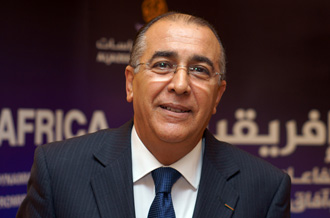 |
| HE Almakki Kwan [Sorin Furcoi / Al Jazeera] |
“Without conflict, Africa would be like some other regions we see today. We should never forget that Europe had the experience of conflict for many centuries until it reached, in a short period of time, its current situation.
“Of course, there have been stages for Europe to overcome and pass through to reach there. Now we see the EU, with all its potential and resources. There’s no reason why Africa cannot do the same.”
| Ayesha Kajee, independent Africa analyst |
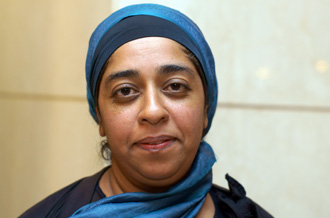 |
| Ayesha Kajee [Sorin Furcoi / Al Jazeera] |
“We’ve had a lot of foreign interference in African conflicts, both intra-state and inter-state. And when I say foreign, I’m talking not only of people outside the continent but other players within the continent as well.
“And that speaks to the lack of a shared African citizenship that is, for me, something we should be working towards. Not just as a pie-in-the-sky ideal but as something that is achievable in the medium to long-term, through integration that includes infrastructural integration, economic integration, looking within the continent for markets, for sourcing goods, for sourcing services and for producing them and distributing them.
“And if we can achieve that successfully, I think we’ll be far better placed to achieve lasting peace and security.”
| Kissima Gako, adviser to the minister of defence, Mali |
|
|
| Kissima Gako [Sorin Furcoi / Al Jazeera] |
“If we think of human existence as tied to conflict, then perhaps we can say that it will never end. And if everyone in Africa is focused on gaining material wealth, and fast, then these conflicts are not likely to end either. These two images – ideas – need to change if conflict is to end.
“One of the most important things is to make sure that leaders reflect the will and choice of the people. And these leaders have to make sure that external actors cannot interfere in the internal procedures and policies of the country.
“The problem is that we still have leaders on the continent who are only interested in their own welfare and not those of the people. They are purely concerned with trying to prolong their term for as long as possible.”
| Lyandro Komakech, School of Law, Makerere University |
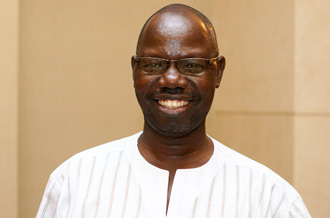 |
| Lyandro Komakech [Sorin Furcoi / Al Jazeera] |
“I think, the way I see a conflict-free Africa is one beginning to appreciate our divides, but not colonial boundaries. It is the economic interest we need to exploit to develop Africa.
“Africa should be seen with the potential to be trade-linked instead, not border-linked. The issue of saying that there are many landlocked countries in Africa is a false position. We would want to see a situation where Africa is land-linked, which is, in terms of resources, linked together. That is when we will truly discover the true identity of Africa.”
| Abdi Ismail Samatar, professor at the University of Minnesota |
|
|
| Abdi Ismail Samata [Sorin Furcoi / Al Jazeera] |
“There are two main challenges to achieving a conflict-free Africa. One is the challenge of internal leadership. Africans have been terrible leaders, by and large, with the exception of people like [Thabo] Mbeki.
“So internal leadership … for that country to have significant civic modernisation on the basis of justice and sovereignty.
“The second is external. Whether it is the war on terror or what not, they are driven by their own instrumental experiences rather than the African people’s. And there is a way in which African experiences can be modulated to sync together in ways that are mutually beneficial for all. That kind of external intervention has not been happening here at all.”
| Kadi Sesay, deputy chair, Sierra Leone People’s Party |
|
|
| Kadi Sesay [Sorin Furcoi / Al Jazeera] |
“I come from Sierra Leone and we’re in a post-conflict stage of our development, having gone through a war that lasted over ten years. So we know what conflict is, the problems of conflict. We know the suffering, we know the destruction that any country goes through during the period.
“A post-conflict country should be one that is peaceful, one that has policies that addresses the issues that led to the war in the first place, a country that works to secure the future of the young, to provide a gambit for the young people.
“Even more importantly, most of our conflict is as the result of corruption. Corruption on the part of our leadership, so I want to see a post-conflict country that addresses the issue of corruption.
“And it is not just saying it, it is actually doing something about it. And, also, leadership that will lead by example. It will not just tell people what to do, it will demonstrate it to the public, by its own actions.”
| Farah Maalim, former deputy speaker of the National Assembly of Kenya |
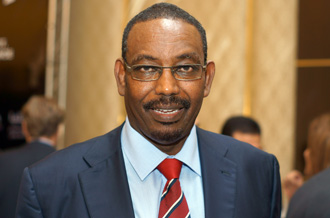 |
| Farah Maalim [Sorin Furcoi / Al Jazeera] |
“[Africa’s potential] is definitely going to be realised because the people of Africa are rising up right now, to reclaim their continent from the dictators and the despots and the exploiters, and all these criminals that came in the forms of ministers of states and leaders.
“They will all be gone – one way or the other. Because the people of Africa will not accept that. What you saw as an Arab Spring started off as an African Spring much earlier, in the eighties and the nineties.
“And it’s still going on. They will achieve it. The only thing is that it is going to be bloody, it’s going to be costly, and it’s going to be long.”
| Sabah al-Mukhtar, president of the Arab Lawyers Association |
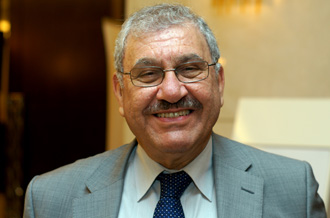 |
| Sabah al-Mukhtar [Sorin Furcoi / Al Jazeera] |
“I worry that the conflicts in Africa are going to continue because there are a lot of reasonable grounds for having conflicts, both domestically, geographically, and with interference from the outside.
“The fight for resources will also increase conflict and I feel the next big conflict in the world is going to be in Africa. China is moving into Africa, and this is making the Americans go crazy. They cannot tolerate the amount of work that the Chinese are doing. The Americans feel they are trespassing on their own backyard and the Europeans are doing exactly the same thing.
“So the point of conflict, the international conflict, is going to take place in Africa, between China and the West, and it’s going to lead to other localised conflict between countries.
“So, I am not very optimistic. I pray that I am wrong, but this is how I see it.”
| Dr Yahia Zoubir, professor of international relations and geopolitics |
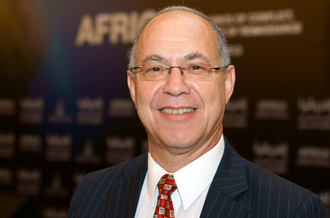 |
| Yahia Zoubir [Sorin Furcoi / Al Jazeera] |
“In Africa, I think one of the missing elements is leadership. Leadership with vision, and leadership that is willing to fight the various ills that the continent has experienced over many years – corruption, bad governance, dictatorial rule, staying in power forever. Although it is changing, it is still one of the basic problems.
“Honestly, I think if there was leadership that knows how to control its resources, if African leaders could muster the resources that they have and use them adequately and involve their populations, and allow civil societies to grow and to flourish, I think Africa can make really good progress.”
| Lindiwe Zulu, international relations advisor |
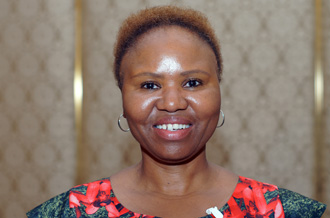 |
| Lindiwe Zulu [Sorin Furcoi / Al Jazeera] |
“One needs to understand that the source of conflict on the continent is historical, linked to colonialism and subjugation. Yes, Africa is free today, but many leaders who have since taken over have forgotten why they are in government.
“In fact, the biggest challenge on the continent is that of political will and a strong leadership that commits itself to addressing the needs of the people. It is one thing to be a leader, but not focusing on the needs of the people is the biggest issue facing this continent.
“And it is the simple things. Water, electricity and health. People need the basic things to make life a little easier for them. And coupled with this is the creation and building of strong institutions.”
| Felzwe Dlamini, ambassador of Swaziland to Qatar |
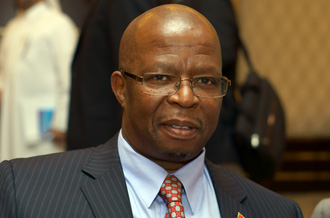 |
| HE Felzwe Dlamini [Sorin Furcoi / Al Jazeera] |
“If we ended the various conflicts on the continent, it would become a fertile ground for development. So much of the continent’s resources are being continuously diverted into trying to manage and solve conflicts. That money could go to improve water and sanitation, towards education and healthcare – even infrastructure development.
“Imagine, if these things were focused upon – what a continent we would have.”
Interviews conducted by Azad Essa, Safeeyah Kharsany, Sumayya Ismail and Barry Malone.
For information on upcoming events at the Al Jazeera Centre for Studies, and to find out about its reports and other publications, you can check its website and “like” it on Facebook.
